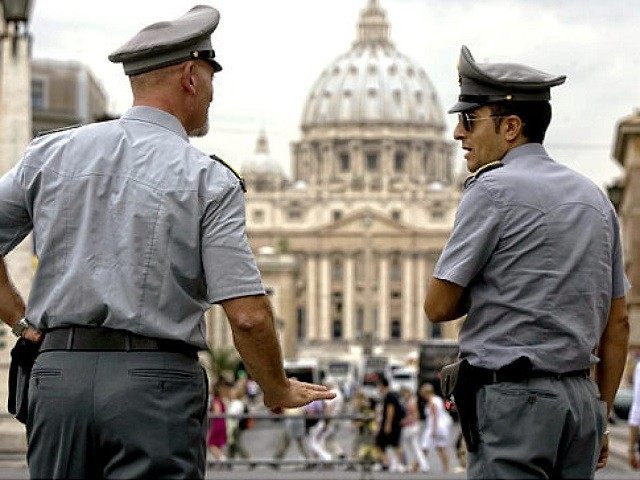Italian and Vatican authorities have signed an agreement on taxation entailing “full cooperation” and “transparency,” including financial activities operated by entities that have accounts at the Vatican Bank.
The “Convention between the Holy See and the Government of the Italian Republic in tax matters,” consisting of a preamble and 14 articles, was signed on Wednesday morning at the headquarters of the Secretariat of State, in the Apostolic Palace, by Archbishop Paul Richard Gallagher, secretary for the Vatican’s foreign ministry, and Pier Carlo Padoan, Italy’s Minister of Economy and Finance.
In an accompanying statement, Archbishop Gallagher said that the Convention “is largely the result of the international efforts of the Holy See in the areas of transparency, supervision and financial information that, from 2010 onwards, has allowed for the implementation of significant reforms.”
According to Minister Padoan, the agreement “is an important step forward that continues the road of tax transparency and will reinforce the mechanism of voluntary disclosure.”
Italy is the first country with which the Vatican signs an agreement governing the exchange of information and is expected to eradicate the administrative premises that permitted the Vatican to become a “tax haven.” For the first time, it will guarantee the payment of taxes to Italy on income produced by assets held in the Vatican City State.
“The aim of the agreement is full transparency and full cooperation,” said Fr. Ciro Benedettini, the deputy director of the Vatican press office.
Wednesday’s agreement is a further step in a series of measures implemented by the Vatican since 2010 to match international standards of financial transparency and leave behind the fiscal opacity that caused various public scandals.
In 2009, the Bank of Italy forced Italian banks to stop doing business with the Vatican Bank because it did not have proper anti-money laundering protocols in place. Despite the reforms since then, the Bank of Italy has not relented from its position.
“Relationships of collaboration and information exchanges have gotten underway,” a Bank of Italy official said. “There has been a change in direction, but there is lots of work ahead of us.”
Cleaning up the Vatican Bank and the Vatican’s financial management has been a priority for Pope Francis, who tapped Australian Cardinal George Pell to head up a new Secretariat for the Economy in February 2014. Pell has been described as “a tough, no-nonsense administrator capable of bulldozing through established patterns of doing business” and unafraid to ruffle feathers.
The statutes of the Council and Secretariat for the Economy, two bodies established by Pope Francis in February 2014 to oversee Vatican finances, came into force on March 1.
Follow Thomas D. Williams on Twitter @tdwilliamsrome

COMMENTS
Please let us know if you're having issues with commenting.